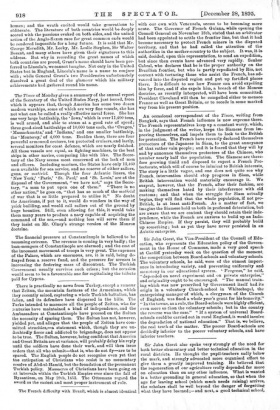Sir John Gorst, the Vice-President of the Council of Edu-
cation, who represents the Education policy of the Govern- ment in the House of Commons, made a very good speech at Cardiff yesterday week on the question of the moment, the competition between Board-schools and voluntary schools. The voluntary schools, he said, were of the utmost import- ance in introducing variety, and preventing uniformity and monotony in our educational system. '• Progress," he said, "depended on novel experiment and on private enterprise,' and originality ought to be encouraged. "The manual train- ing which was now prescribed, by Government itself had its origin in a voluntary Church-school in Whitechapel, the enterprising manager of which, a clergyman of the Church of England, was fined a whole year's grant for his temerity.' "In the towns, as a rule, the Board-schools were highly efficient, even more so than the voluntary schools; but in the country the reverse was the case." "If a system of universal Board- schools could be carried out in rural England, it would involve the degradation of national education." That is, we believe, the real truth of the matter. The poorer Board-schools are decidedly inferior to the poorer voluntary schools, and have inferior teachers.


































 Previous page
Previous page